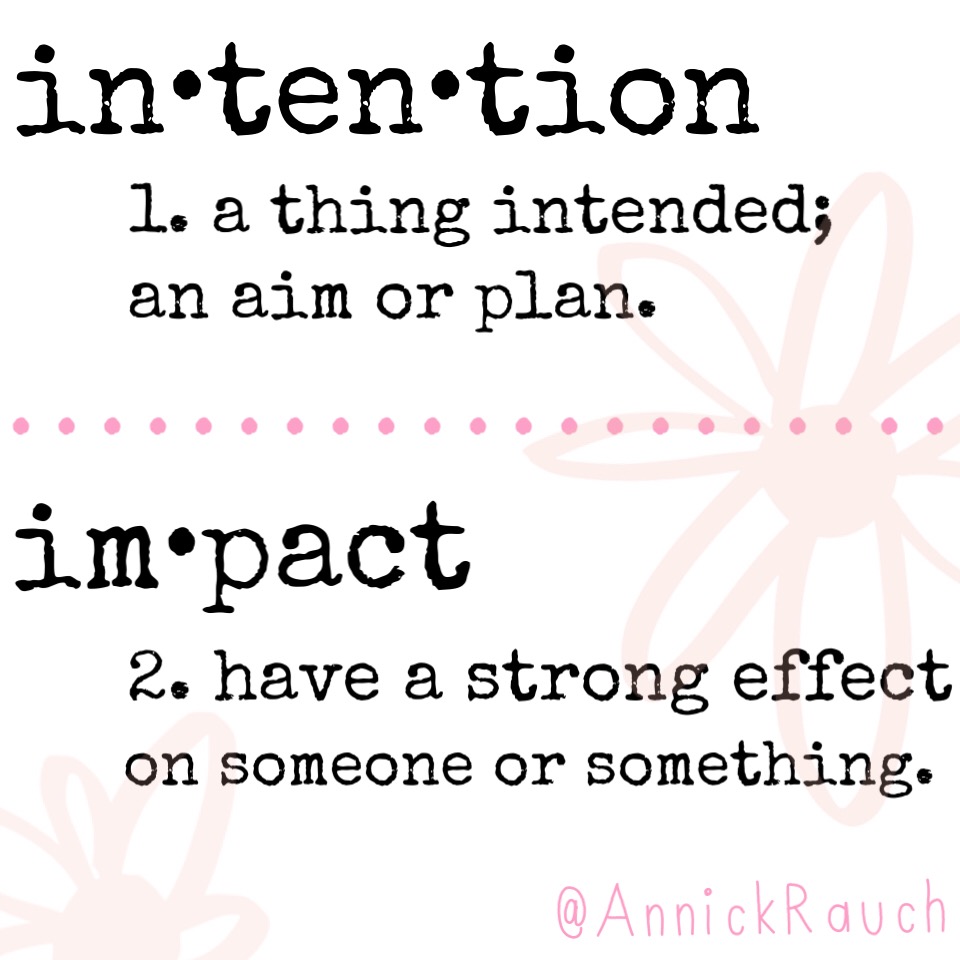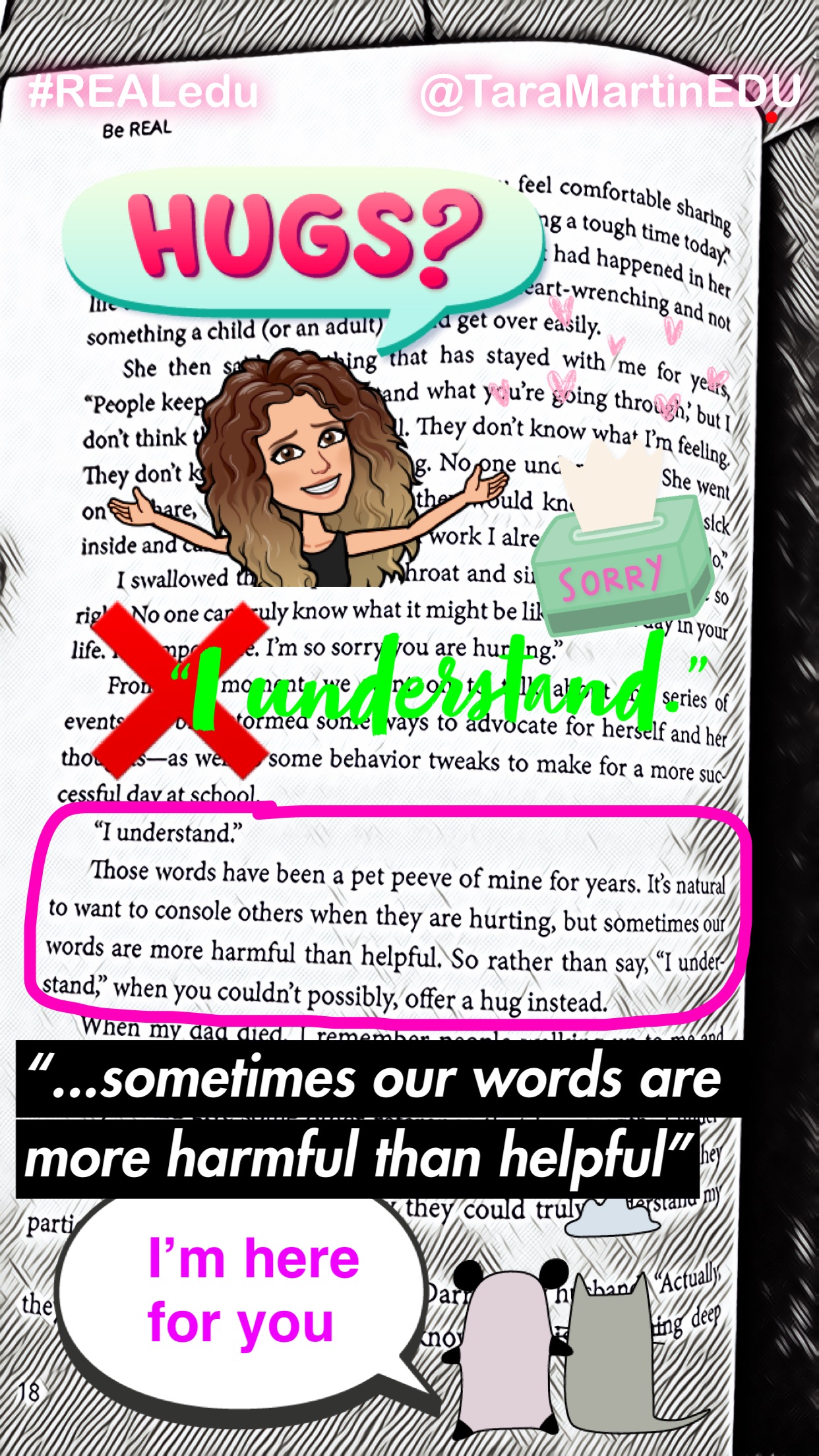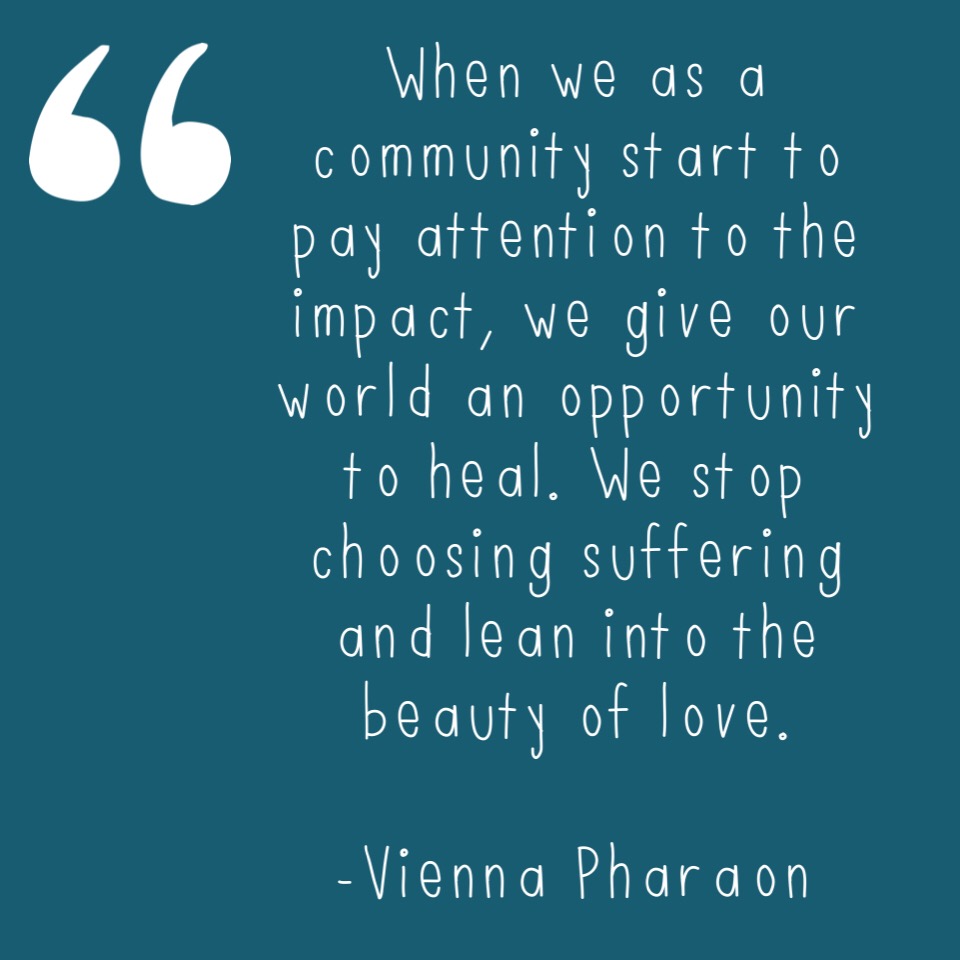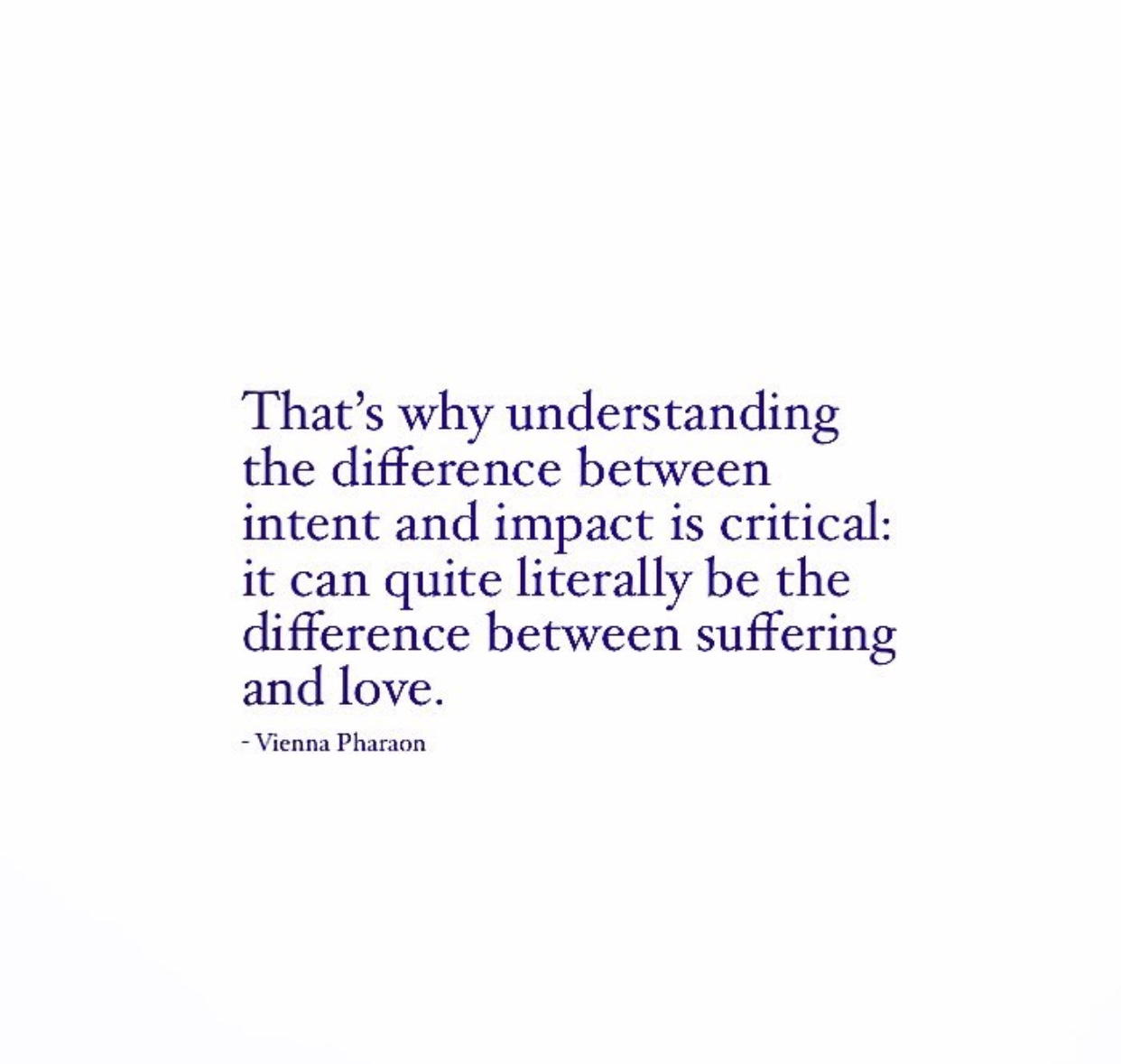Intent and Impact

Have you ever had anyone try to dismiss your feelings because they had good intentions? Or maybe it was the other way around, you used good intent as an excuse to validate your behaviour without considering how it impacted those around you. Don’t get me wrong, sometimes our intentions are completely valid, after all, things come up, mistakes are made, and we can’t be perfect. But, what I’ve been really reflecting on lately is that we can’t use intentions as an excuse. Sometimes our intentions don’t matter. We have to put our intentions aside and focus on the impact we’ve had.
I came across this post on Instagram by Vienna Pharaon a couple of weeks ago and a seed of deep reflection was planted (take an extra close look at the last two powerful sentences – emphasis by me).
Sometimes our intent doesn’t matter. Sometimes our intentions can be backed by plenty, but our reasoning doesn’t change the impact that it has.
For example, “I didn’t mean to lose track of the time and miss your performance. I even set an alarm so that I wouldn’t miss it! My intentions were good, I swear.” Okay – factual, let’s say, but that doesn’t change the person’s experience who was impacted by the disappointment and let down. Just because your intentions were good doesn’t null out that the impact was one that disappointed and hurt someone.
Let’s try another, shall we? “I used anger and fear when you were growing because I wanted to protect you from this scary world. My intentions were to always protect you.” Again – maybe all true through the lens of what motivated that parent, but it doesn’t change that the anger and the instilling of fear may have had a deep impact on that child who is now an adult trying to heal the wounds.
This is useful in all of your relationships, friends. Please consider that there is a difference between intentions and impact and that often times they don’t line up. Please consider that just because you may be able to make a case for yourself, doesn’t mean that you don’t make room for empathy, compassion and connection for another.
Sometimes the impact HAS to trump the intent. Sometimes impact HAS to be prioritized over your belief systems, over your righteousness, and over your fears.
Let’s be clear: children need their parents. Children need their opportunity to attach. The impact that the trauma will have has to be greater than what any being believes is right and wrong. When we as a community start to pay attention to the impact, we give our world an opportunity to heal. We stop choosing suffering and lean into the beauty of love. #mindfulmft
Every day, educators make decisions that directly impact those we serve. So although we may have the best of intentions, we have to also focus on the impact that we have.
This hit home again while I was reading “Be Real” by Tara Martin this week.
“I understand.”
Two words that are overused with good intentions. Two words that I dislike, even though I am totally guilty of using them.

In her book, Tara opens up about the time in her life when her dad died and how well-intended people would say things like “I understand how you feel. My father died of cancer last year.” She shares with us that no one could ever possibly understand how she was feeling and what she was going through because she had never told anyone. Our realities, no matter how similar they may seem, are never, ever the same. We deal with things differently and the smallest of nuisances can make the world of a difference. We can’t assume that we know what someone is going through and we should never pretend to understand. There are so many others ways to support those we care for, but using those two words, I understand, no matter how good our intentions are, might be causing more harm than good.
So, as I continue to reflect on this important concept of intent and impact, I want to remember that:
Sometimes, intentions don’t matter.
Impact is important to consider. Show empathy.
Sometimes, problems don’t need fixing. Sometimes, just being there for someone is enough. No words spoken. No actions made. Just there. Knowing that someone who cares for you hears what you’re saying, and is there to truly listen without the intent to reply or fix anything, is enough.
Intent and impact don’t always line up. Remember:



Lance McClard
July 5, 2018 at 1:58 pmInsightful post. It makes me think of a TED Talk I want to show my staff about the impact they can have, even if they may not remember the life-changing event.
https://www.ted.com/talks/drew_dudley_everyday_leadership?utm_campaign=tedspread&utm_medium=referral&utm_source=tedcomshare
Annick Rauch
July 5, 2018 at 2:25 pmOhh awesome! Thanks for sharing, Lance! Looking forward to watching this!!